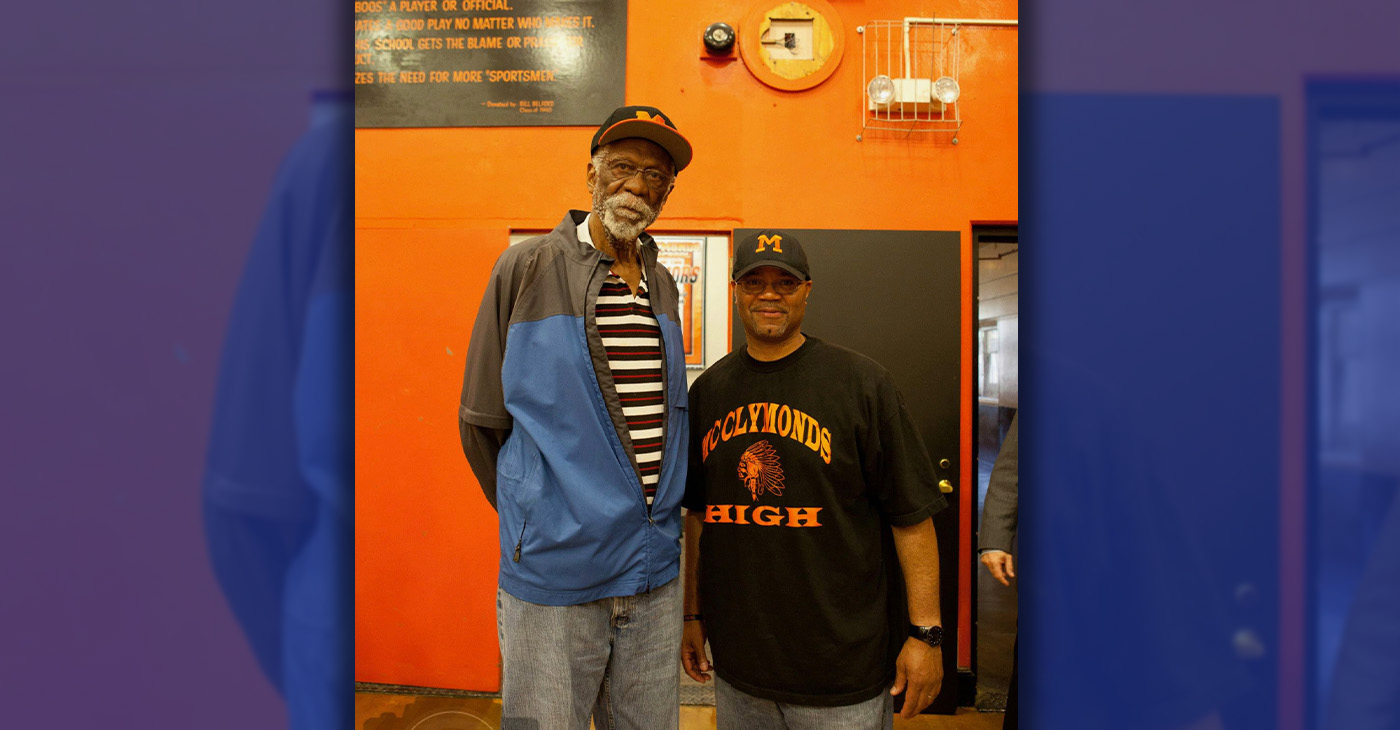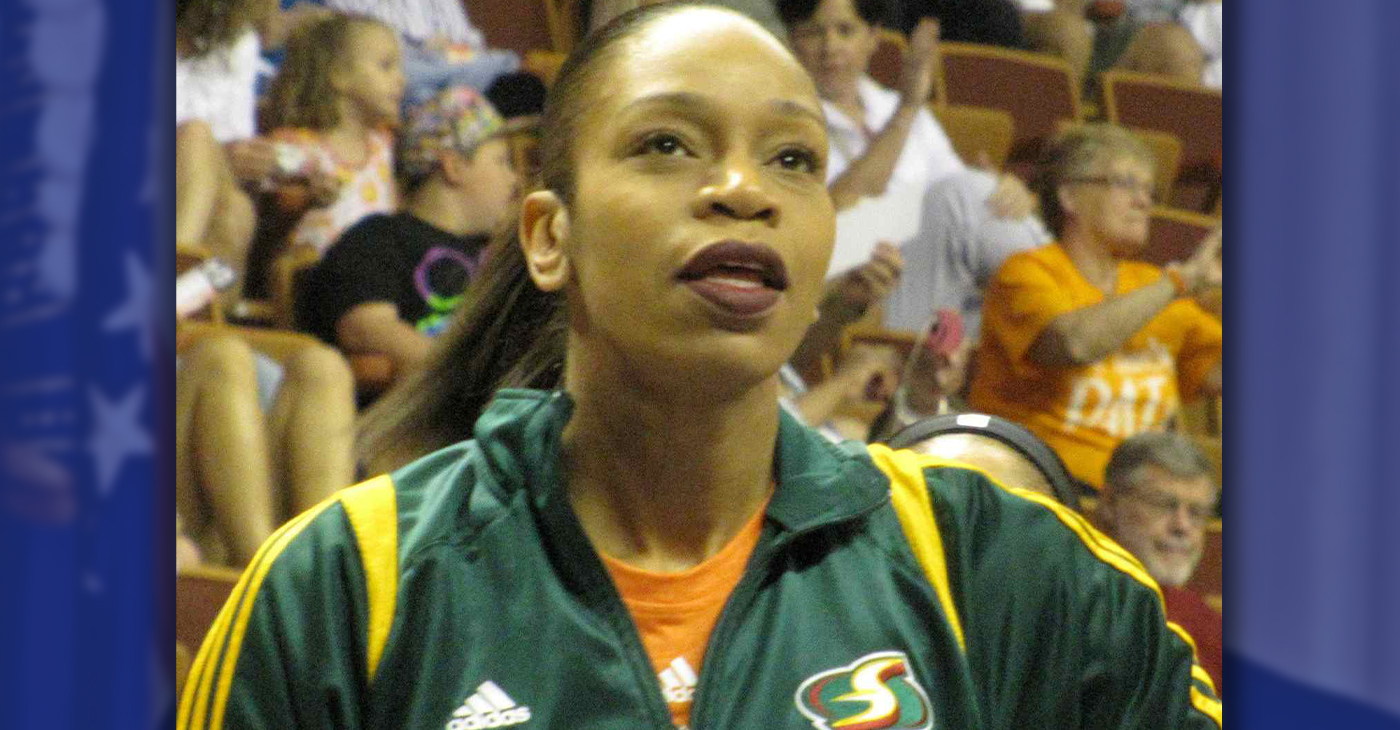Sports
Downtown LA NFL Stadium Plan Declared Defunct; Others Remain

This undated file artist’s rendering provided by AEG shows a proposed NFL football stadium, to be named Farmers Field in Los Angeles. A transportation consultant said Monday, Sept. 26, 2011, the $1.2 billion football stadium proposed for downtown Los Angeles. Developer AEG said in a statement Monday, March 9, 2015, that it is “no longer in discussion with the NFL or any NFL team.” The announcement leaves two clear contenders for the NFL’s return to the area, both in cities just outside Los Angeles: A stadium in Inglewood proposed in January with the backing of St. Louis Rams owner Stan Kroenke, and a project in Carson announced last month with the joint backing of the Oakland Raiders and San Diego Chargers. (AP Photo/AEG, File)
ANDREW DALTON, Associated Press
LOS ANGELES (AP) — Farmers Field had a prime location in downtown Los Angeles, big-time boosters, a builder with an impeccable professional sports resume, even a name and sponsor — rare for a project in the planning stages.
What it did not have was an NFL team attached. And in the end that was all that mattered.
Just months after it was the latest, greatest hope for bringing the NFL back to the city for the first time in 20 years, the stadium project was declared dead by its developer AEG on Monday.
Its demise was sped by a pair of competing stadium plans that had the unbeatable advantage of having NFL owners and their teams attached.
“We are no longer in discussion with the NFL or any NFL team,” said Ted Fikre, vice chairman of AEG, which owns the NHL’s Los Angeles Kings and the downtown Staples Center, home of the NBA’s Lakers and Clippers.
The developer had spent five years and at least $50 million on the project, but AEG now says it will focus on other downtown development projects.
The announcement leaves two clear contenders for the NFL’s return to the area for the first time in two decades, both in cities just outside Los Angeles: A stadium in Inglewood proposed in January with the backing of St. Louis Rams owner Stan Kroenke, and a project in Carson announced last month with the joint backing of the Oakland Raiders and San Diego Chargers.
The downtown project — which would have been unusual for the NFL where most venues are in suburbs instead of city centers — appeared to gain new life in October when the developer asked for and received from the city a six-month extension for its deadline to attract an NFL team for the project. AEG cited “new dialogue” with the league.
But Fikre said Monday that it will allow that extension to expire in April with no renewal.
The project’s boosters included Mayor Eric Garcetti, much of the City Council and local business leaders.
Michael Eisner, former chief executive at the Walt Disney Co., told The Associated Press in November that Farmers Field would have been an ideal addition to the re-emergence of downtown LA.
“It just felt to me that if we could pull this off, particularly in the downtown area, that the renaissance of Los Angeles … could be enhanced,” he said.
“I’m a Disney guy,” Eisner said. “I’m looking for the end of the movie to be happy.”
Garcetti’s spokesman, Yusef Robb, said the priorities of the mayor’s office “have always been about accelerating downtown’s revitalization,” but City Hall will be happy to cheer for a team and a stadium outside its borders.
“In terms of football, we continue to stand with the fans — we would welcome a team anywhere in our region that delivers the greatest benefit to our communities and economy,” Robb said in a statement.
In Inglewood, the City Council bypassed several environmental and other hurdles late last month by adding its stadium project to an already-approved development underway at the former Hollywood Park racetrack. That would appear to put it at the forefront of Southern California cities jockeying to build NFL facilities. St. Louis and the state of Missouri are working just as quickly to provide a proposal to build a new home there to keep the Rams.
In Carson, stadium backers turned in enough signatures last week for a ballot initiative that would allow a Chargers-Raiders joint stadium on the site of a former landfill. But those two teams have said the move to the Los Angeles area would come only if their current hometowns fail to offer desirable deals.
Amid what was becoming a frenzy, the NFL circulated a memo earlier this year reminding team owners that in the end, the league and the league alone will decide whether a team — and which team — will move to the Los Angeles area.
Copyright 2015 The Associated Press. All rights reserved. This material may not be published, broadcast, rewritten or redistributed.
Activism
McClymonds High Names School Gym for Star Graduate, Basketball Legend Bill Russell
William “Bill” Felton Russell was born on Feb. 12, 1934, and died on July 31, 2022. He achieved fame as a U.S. professional basketball player who played center for the Boston Celtics of the National Basketball Association (NBA) from 1956 to 1969. He was the centerpiece of the Celtics dynasty that won 11 NBA championships during his 13-year career.

By Ken Epstein
West Oakland’s McClymonds High School, “the School of Champions,” this week named the school’s gymnasium in honor of one of its most famous graduates, basketball legend Bill Russell (class of ’52).
William “Bill” Felton Russell was born on Feb. 12, 1934, and died on July 31, 2022. He achieved fame as a U.S. professional basketball player who played center for the Boston Celtics of the National Basketball Association (NBA) from 1956 to 1969. He was the centerpiece of the Celtics dynasty that won 11 NBA championships during his 13-year career.
Russell is widely known as one of the greatest basketball players of all time. In 2011, he received the Presidential Medal of Freedom, the country’s highest civil honor, from President Barack Obama for Russell’s contributions to basketball and the Civil Rights Movement.
The McClymonds’ naming ceremony was held on Wednesday, the same day as Russell’s birthday. Oakland leader Bill Patterson, a longtime friend of Russell’s, was scheduled to cut the ribbon at the reopening of the gym, which had been closed for several months for renovation. Russell’s daughter Karen was scheduled to attend the ribbon cutting.
Russell’s name and signature are now printed on the gymnasium floor.
Patterson was working at DeFremery Park when he met Russell. “I befriended him as a boy and during his years at University of San Francisco” said Patterson. “We stayed friends for the rest of his life.”
Said McClymonds Principal Darielle Davis, herself a McClymonds graduate, “We are excited to honor Bill Russell for his sports accolades and because he broke color barriers. He is part of our legacy, and legacy is really important at McClymonds.”
Brian McGhee, community schools manager at McClymonds and former football player at UC Berkeley, said that Russell meant a lot to him and others at the school. “He was a beacon of light and hope for West Oakland,” he said. “He did a lot for sports and for civil rights.”
Starting in 2018, Ben “Coach” Tapscott worked with Patterson and other McClymonds grads, community members, and former coaches to encourage the Oakland Board of Education to endorse the naming of the school gym, which finally happened recently.
“We worked hard to make this happen,” said Tapscott. “He’s an important part of McClymond’s history, along with a lot of other famous graduates,” he said.
Activism
OPINION: Politics, Football and Identity in Trump’s America
If you haven’t noticed, all Americans are engaged in an even bigger game that means so much more than the Super Bowl. Our democracy is falling apart.

By Emil Guillermo
Two Filipino American stories made headlines recently.
First, Nikko Remigio, the Filipino and African American kick returner for the Kansas City Chiefs, did not win Super Bowl LIX.
The other, Alameda’s Rob Bonta said no to running for governor. I don’t blame him. It’s not like a mass of people wanted him to run.
But I did.
Whenever there is a Filipino American in a place you don’t expect, I’m rooting for that person.
As California’s Attorney General, Bonta is probably the most active defender among Blue States pushing back against Trump’s Extreme-Right agenda.
I’d like to Bonta run for California’s top job, but he’s better off waiting in line. The Democrats need a spot for Kamala Harris, and Bonta not running obliges the hierarchy.
History can wait. Bonta’s just 52.
Harris has held off speculation of her next move, saying she just moved back to the state. But it seems governor is the path for her.
For now, Bonta needs to continue taking the fight to Trump in the courts.
Football and Identity Politics
My dad, whose birthday would have been Super Bowl weekend, came to the US in 1928 as a colonized Filipino, an “American National,” where he couldn’t be a citizen, vote, own property or even marry the person he wanted.
Not if they were White.
Still, he believed in America. He never gave up.
Sort of like Nikko Remigio.
My dad would have loved Nikko.
If you haven’t noticed, all Americans are engaged in an even bigger game that means so much more than the Super Bowl. Our democracy is falling apart.
You want to get passionate about Eagles and Chiefs?
Let’s be passionate about our Founding Fathers, too.
Nikko didn’t change the game. He touched it three times and provided more yards than all of KC’s running backs.
That’s all I needed to see.
He’s our Filipino guy.
Detractors may call it “identity politics.”
People don’t seem to understand the fight for visibility. To be recognized. To be seen. It’s all wrapped up in the big idea of Civil Rights.
I was nowhere near as good as Nikko when I played. But when you are blessed to play football, you play your hardest.
For me, that was when I was 12 and 13 playing Pop Warner football in San Francisco. I was MVP for my team as a running back.
But I was ashamed of my dad. He wasn’t like the other dads. And I remember going to the team banquet to retrieve my trophy alone.
I didn’t realize it probably meant more to him than I thought.
I wish I had shared my MVP moment with him like Nikko shared his joy with his dad, Mark, born in Seattle to two Filipino immigrants, and his mom, whose mixture of Black and White made Nikko the picture of diversity.
Filipino American and Black and White at the Super Bowl.
But don’t forget, there is one game bigger.
The Super Bowl for Democracy. We’re battling for it every day Trump pushes a cockamamie idea that shakes the foundation of our Democracy.
About the Author
Emil Guillermo is an award-winning journalist and commentator. Watch his micro-talk show “Emil Amok’s Takeout/What Does an Asian American Think?” on www.YouTube.com/emilamok1 Or join him on http://www.patreon.com/emilamok
Bay Area
Tina Thompson: Champion, Legend, and Pioneer of Women’s Basketball
Known for her signature red lipstick, Thompson displayed confidence and style on the court, becoming an icon both for her gameplay and her individuality. Her ability to score from anywhere on the floor, combined with her defensive prowess, made her one of the league’s most formidable players.

By Tamara Shiloh
The establishment of the Women’s National Basketball Association (WNBA) in 1996 was a turning point for women’s sports, creating a professional platform for female basketball players to showcase their skills at the highest level. Among the trailblazers who helped launch the league, Tina Thompson stands out as the first African American woman drafted into the WNBA.
Tina Thompson was born on February 10, 1975, in Los Angeles, California. Raised in a basketball-loving household, she quickly developed a passion for the game. Thompson improved her skills on the playgrounds of South Central Los Angeles, often playing against boys, which toughened her game and fueled her competitive edge.
She attended the University of Southern California (USC), where she became a standout player for the Trojans. Known for her versatility, scoring ability, and relentless work ethic, she earned All-Pac-10 honors multiple times and cemented her reputation as one of the top collegiate players in the nation.
When the WNBA held its first-ever draft on April 28, 1997, Tina Thompson made history as the league’s first African American player to be drafted. Selected as the first overall pick by the Houston Comets, she joined a team that would go on to dominate the early years of the WNBA.
Tina’s selection was a historic moment, symbolizing the league’s commitment to showcasing diverse talent. As a Black woman in a pioneering role, Thompson carried the hopes of aspiring African American female athletes who dreamed of playing professional basketball.
Tina wasted no time making an impact in the WNBA. As a key member of the Houston Comets alongside legends Cynthia Cooper and Sheryl Swoopes, she helped lead the team to an unprecedented four consecutive championships from 1997 to 2000. The Comets’ dynasty became the gold standard for excellence in the league’s early years.
Known for her signature red lipstick, Thompson displayed confidence and style on the court, becoming an icon both for her gameplay and her individuality. Her ability to score from anywhere on the floor, combined with her defensive prowess, made her one of the league’s most formidable players.
Over a career spanning 17 seasons, Tina established herself as one of the WNBA’s all-time greats. She retired as the league’s leading scorer, a record she held until it was broken by Diana Taurasi. She was a nine-time WNBA All-Star and was named to multiple All-WNBA teams, cementing her status as one of the sport’s legends.
In 2018, Thompson’s contributions to basketball were recognized with her induction into the Naismith Memorial Basketball Hall of Fame. The honor underscored her influence not just as a player, but as a trailblazer for African American women in sports.
After retiring from professional basketball, she transitioned into coaching, using her experience and knowledge to mentor young athletes. She has served as a head coach at the collegiate level, inspiring the next generation of players to pursue excellence both on and off the court.
As a role model and advocate, Thompson has consistently emphasized the importance of education, empowerment, and self-belief. Her story resonates with countless young women who see in her the embodiment of perseverance and success.
Tina Thompson is presently in her third season as an assistant coach at the University of Texas at Austin.
-

 Activism4 weeks ago
Activism4 weeks agoOakland Post Endorses Barbara Lee
-

 Activism4 weeks ago
Activism4 weeks agoOakland Post: Week of April 2 – 8, 2025
-

 Activism2 weeks ago
Activism2 weeks agoOakland Post: Week of April 9 – 15, 2025
-

 #NNPA BlackPress3 weeks ago
#NNPA BlackPress3 weeks agoTrump Profits, Black America Pays the Price
-

 #NNPA BlackPress3 weeks ago
#NNPA BlackPress3 weeks agoHarriet Tubman Scrubbed; DEI Dismantled
-

 #NNPA BlackPress3 weeks ago
#NNPA BlackPress3 weeks agoTrump Targets a Slavery Removal from the National Museum of African-American History and Culture
-

 #NNPA BlackPress3 weeks ago
#NNPA BlackPress3 weeks agoNew York Stands Firm Against Trump Administration’s Order to Abandon Diversity in Schools
-

 #NNPA BlackPress4 weeks ago
#NNPA BlackPress4 weeks agoLawmakers Greenlight Reparations Study for Descendants of Enslaved Marylanders


























































